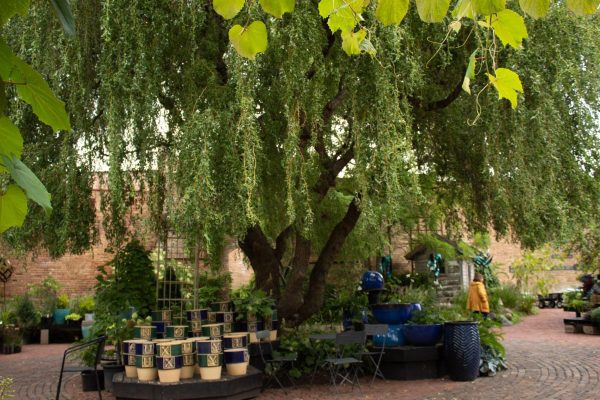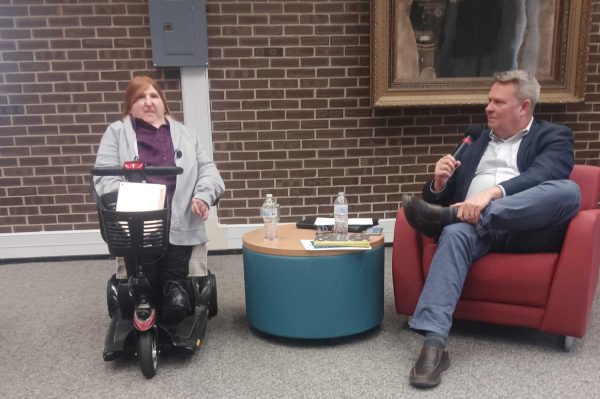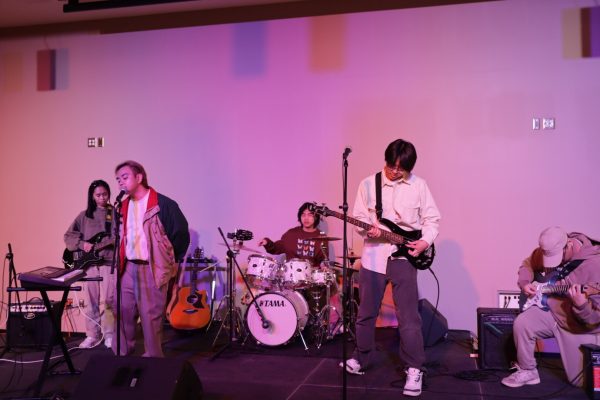Is the real Paris like that Hilton girl?
August 30, 2006
David Rauch is a Northern Star employee studying abroad. “An American In Paris” will chronicle his studies and adventures in France.
So, this is what international study feels like? This is Paris?
Hostels, shaky French movies, tourist traps to avoid like Illinois pot-holes, age-old buildings seen from the Seine, a history that will not let go.
Then, there is myself, David Rauch, 21, NIU journalism major. One of 11 million Parisians attracted like moths to the bright lights, promised by high-school social-studies classes that I’d find the Europeans so refined, their foods fresher, their public transportation safer and cleaner, their culture more intimate. I left NIU to study for four months in Paris with an international program called Contemporary French Studies. I’ll live with a French jewelry artist and her sons in an apartment in a working class neighborhood, though currently, I’m cooped up in a ratty hostel in the center of tourist Paris. I’m waiting for the city to open her doors to me.
Paris, however, to fresh tourists, is very, very large.
This feeling, according to the Rhinesmith Curve, culture shock guidelines, is natural. Insignificant, humble, open-minded, euphoric, malleable, irritable, afraid, intimidated, curious. All these things I’ve felt every day, though not necessarily in that order.
A big French onion soup of cultures and classes, Paris is. The salty Seine River broth, coursing through the heart of the city (not to mention the earthy brown color so similar), sweaty-onion Parisians boiling together under the hard, pungent gruyere cheesy history — add a little wine and bread — and it’s maddeningly Paris.
Maddening in that it can be the cultured center of the world, yet there is discrimination so unashamed you think you’re back in the Middle-Ages. The Muslims, Jews, Africans, Portuguese, to a lesser extent the tourists, when one witnesses the curt brush-off, a denied entrance to a restaurant or simple divisions of neighborhoods that should otherwise be able to share space peacefully, it makes me wonder how Paris can be so known worldwide for being forward thinking and artistically open-minded.
There are some interesting contradictions with Parisian life:
1) Men kiss each other on the cheek when they say “bonjour” yet stare solely at their shoes for an entire 30-minute train ride.
2) A bottle of red wine, that in America costs $30, sells for three euros (1 euro=$1.30 USD) at any Parisian market, but per glass at a bar costs more than in America.
3) The city, on a map, looks large and daunting. Yet on the streets it feels absolutely claustrophobic. These facts have plagued writers, travelers, thinkers, even Parisians, since the middle ages — even earlier perhaps.
It seems facetious to think I can get to the bottom of it, the question of Paris. But armed with some elementary language skills, an old digital camera and a notebook, you’ll hear about every puddle, every missed train, every scant revelation — trust me — everything embarrassing and cultural I’ve got.
I’ve got nothing but time. My friends are all back home and I spent a lot of money to get here. I’m going to make it count come hell or high water, if I have to pull it out of the rat-infested sewers or from the hand of a bum in a dark, alley. This has got to mean something.
Here’s a picture,
David










